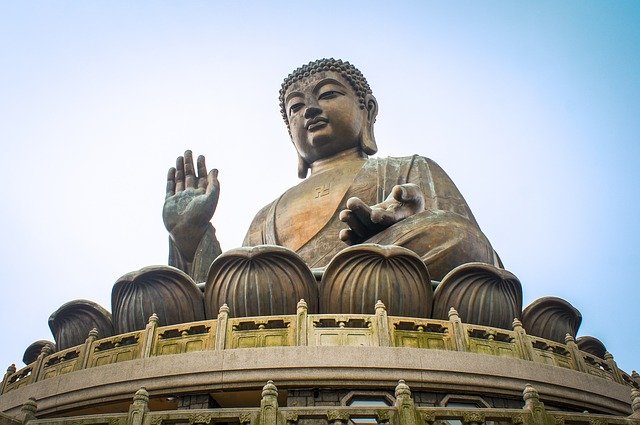A lot has been done in the name of Dharma and it has still been continuing in various centers around the world. If you look at the Buddha Dharma, many things have been fabricated over the years to such an extent that many believe that they perform all the virtuous acts which in the real sense is just the exact opposite of what Lord Buddha had preached many years back.

Table of Contents
Who is Buddha?
Hence a proper understanding of what Buddha is and what he meant by his preaching is extremely important for us to understand. Many believe that by praying to them, Buddha or the deities will take care of your problems. This gives us an opportunity to understand the Buddha like the concept of god.
Well, it has never been documented and claimed so far in that sense.
what is buddha ?
Buddha is not a name; it is a title that meant “one who is awake.” We had been enveloped in the midst of greed, jealousy, desire, hate, and ignorance. Buddha is the one who is freed from such an illusion who is awakened to the true nature of reality. An enlightened being who wanted to free the mortal beings from the world of attachments and sufferings took the form of a person in the name Siddhartha Gautama who lived in what is now northern India and Nepal about twenty-five centuries ago.
Siddartha Gautama
Siddartha Gautama was born at Lumbini, Nepal in about 567 BCE as a son of a king raised in utmost luxury married and had a son. At the age of 29 years old, his life took a dramatic turn upon witnessing
- An aged man
- A sick man
- A dead man
- A religious ascetic
With suffering as the core of our existence, Prince Siddhartha Gautama choose the ascetic forms of life by renouncing all his material wealth and began to look for the ultimate reality.
“He sat in meditation beneath “the Bodhi tree” until he realized enlightenment”
Upon attaining enlightenment, Prince Siddhartha Gautama was referred to as the “Buddha” or “the awakened one”.
What is Buddhism?
All religions preach love and compassion. Siddhartha Gautama upon attaining enlightenment achieved enormous wisdom and was awakened to the true essence of reality that the ultimate meaning of our existence is to escape from this illusion of attachments, desires, hate, ignorance, and jealousy. All of which were the primary causes behind the sufferings to which we all have adhered. To do this, Lord Buddha gave numerous teachings to his followers to get rid of this illusion thereby preaching to the people to understand the ultimate meaning of our existence.
Believe nothing, merely because you have been told it.
Lord Buddha
Do not believe what your teacher tells you merely out of respect for the teacher.
But whatsoever, after due examination and analysis,
you find to be kind, conducive to the good,
the benefit, the welfare of all beings that
doctrine believes and cling to, and take it as your guide.
Hence I would rather say living a life of goodness in the absence of suffering is something which we all wish to do. So Buddhism is a way of life.
Those principles which include the principles of causality, interdependence, and how we are responsible for our own actions are what Buddhism, in general, is all about. Buddha stressed how every individual has the potential to achieve ultimate happiness which takes wisdom, compassion, and hard work. The preaching’s done by Lord Buddha for the betterment of all sentient beings to escape from the so-called “Khorwa” is what we use to call Buddhism.
Buddha? Why Buddhism ?
In order for us to escape completely from the world of sufferings and subdue them, we need constant, rigorous training of our minds to get an insightful view of reality. We at times tend to feel that we are practicing Buddhism a lot, but we tend to lack behind in reaching our goals of nirvana. Hence the right approach or the right training of our mind is highly essential in escaping the problems and find lasting happiness.
Lord Buddha had adopted different methods like self-mortification, isolation, etc. before coming into the understanding of the middle way of Buddhism. Hence obtaining Buddhahood may not be simple, but is certainly possible. If it was for Prince Siddhartha Gautama, why not for all of us?
But attaining enlightenment takes devotion, persistence, concentration, empathy in this life or maybe in many lifetimes, but eventually, it will succeed. This revolves around the idea of cause and effect. When the cause is wise, the result is obviously wise. The idea of having blind faith is totally disregarded in Buddhism which is why Lord Buddha quoted:
“O bhikshus and wise men, just as a goldsmith would test his gold by burning, cutting, and rubbing it, so you must examine my words and accept them, but not merely out of reverence for me.”
Lord Buddha
Having irrational faith alone can be dangerous, but faith based on rationality, compassion, detachment is essential for one to practice Buddhism.
Related Articles
